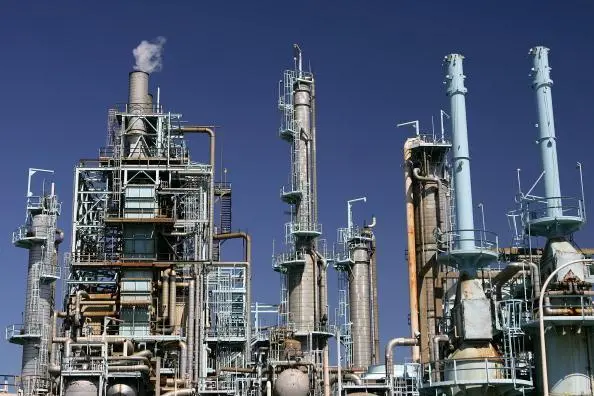PHOTO
- EIA data due later in the day
- Asian shares track Wall Street lower
- Abu Dhabi’s index rises 1.6 percent
- Dollar remains unchanged, gold drops
Oil prices
Oil prices rose in early trading on Thursday as the American Petroleum Institute, showed that United States’ crude inventories fell by 5.3 million barrels in the week to May 24 to 474.4 million barrels.
U.S. West Texas Intermediate (WTI) crude futures were up 26 cents, or 0.4%, at $59.07 a barrel by 0258 GMT. They closed down 0.6% on Wednesday after hitting their lowest since March 12 at $56.88.
Brent crude futures, the international benchmark for oil prices, were up 14 cents, or 0.2 percent, at $69.59 a barrel. They fell nearly 1% in the previous session after dropping as low as $68.08.
Weekly U.S. oil inventory data has been delayed by Monday’s Memorial Day holiday, with the official data from the Energy Information Administration (EIA) due on Thursday at 1500 GMT.
“If we do get a decent draw with U.S. inventories from the EIA report, we should see crude continue to stabilize,” Edward Moya, senior market analyst at OANDA in New York told Reuters.
Global markets
Asian shares edged lower on Thursday, tracking a drop on Wall Street overnight.
MSCI’s broadest index of Asia-Pacific shares outside Japan was 0.1% lower after briefly slipping to a fresh four-month low.
The Dow Jones Industrial Average fell 221.36 points, or 0.87%, to 25,126.41, the S&P 500 lost 19.37 points, or 0.69%, to 2,783.02 and the Nasdaq Composite dropped 60.04 points, or 0.79%, to 7,547.31.
“The equity markets are in the midst of pricing in a long-term trade war, with participants shaping their portfolios in anticipation of a protracted conflict,” Soichiro Monji, senior strategist at Sumitomo Mitsui DS Asset Management, told Reuters.
“The upcoming G20 summit could provide the markets with relief, as the United States and China could use the event to begin negotiating again over trade.”
Middle East markets
The Abu Dhabi index rose 1.6% on Wednesday, led by the United Arab Emirates' largest lender, First Abu Dhabi Bank, which rebounded 3.3% to 14.3 dirhams.
In Dubai, the index fell 0.3%, mostly pulled down by Emaar Group companies. Blue-chip developer Emaar Properties shed 1.1%, while its units Emaar Malls and Emaar Development fell 2.1% and 2.3% respectively.
Saudi's index fell 1.6%, with Riyad Bank down 3.6% and Banque Saudi Fransi sliding 5.4%.
Qatar's index closed 0.4% higher, as gains in banks offset losses in other sectors. Qatar National Bank was up 3.8% while Qatar Commercial Bank climbed 3.4%.
Egypt's blue-chip index was down 0.4%, with El Sewedy Electric losing 2.8% after on Tuesday reporting a near 30% drop in the first-quarter profit.
Kuwait’s blue-chip index EGX30 added 0.8 percent, Bahrain’s index edged 0.2 percent higher and Oman’s index gained 0.6 percent.
Currencies
The dollar was mainly unchanged on Thursday.
The dollar index, which measures the greenback against a basket of six major currencies, was basically flat at 98.128.
Precious metals
Gold prices dropped on Thursday.
Spot gold was down 0.1% at $1,277.71 per ounce, as of 0312 GMT.
U.S. gold futures edged 0.3% lower to $1,276.70 an ounce.
(Reporting by Gerard Aoun; Editing by Mily Chakrabarty)
Our Standards: The Thomson Reuters Trust Principles
Disclaimer: This article is provided for informational purposes only. The content does not provide tax, legal or investment advice or opinion regarding the suitability, value or profitability of any particular security, portfolio or investment strategy. Read our full disclaimer policy here.
© ZAWYA 2019




















